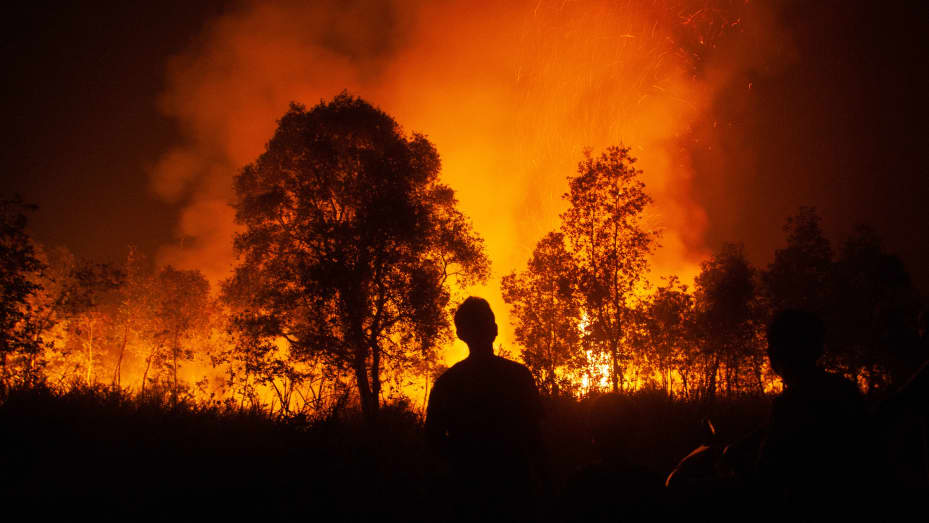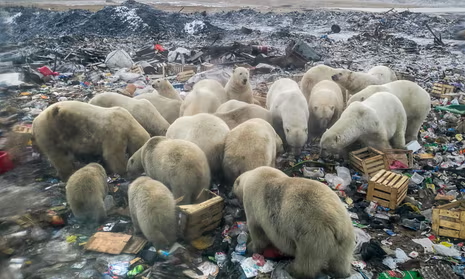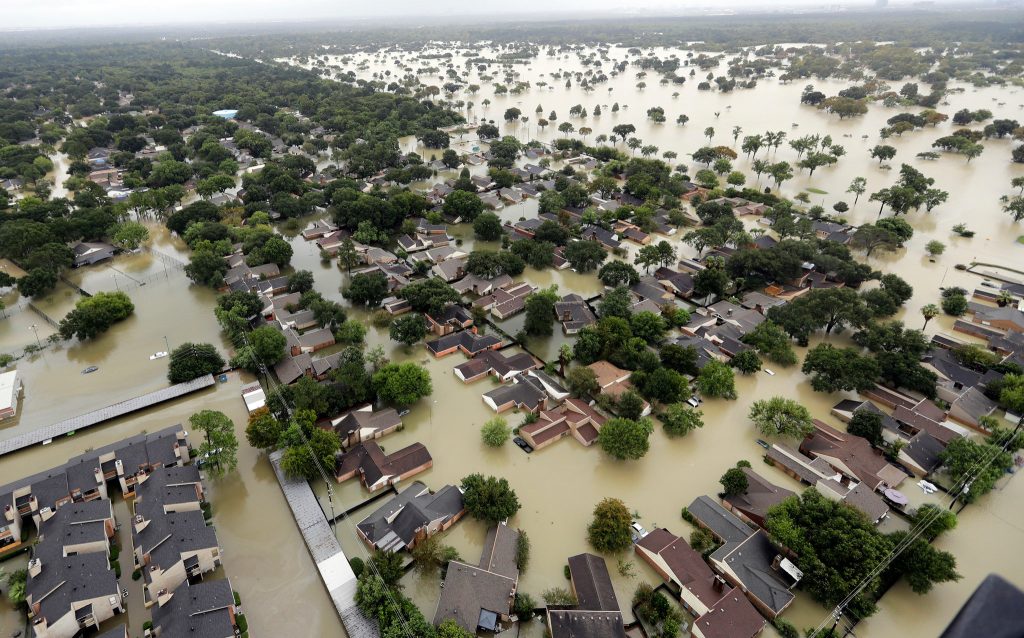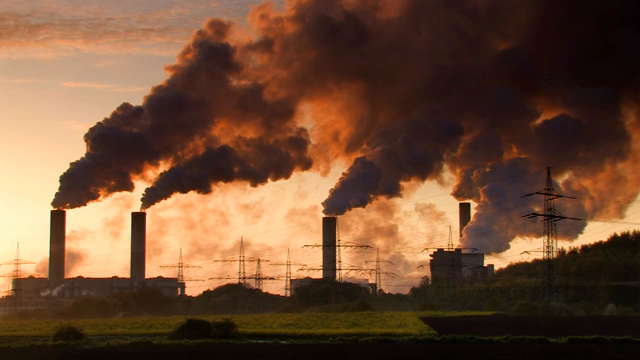- Katılım
- 12 Tem 2024
- Mesajlar
- 5
- Tepkime puanı
- 0
Even though not so many people are aware of the real consequences of the climate crisis which is getting out of hand with every passing second, there is so little done to tackle the issue seriously.
There are people and groups who take initiative to tackle the issue and make an effort to create some tangible solutions, but without the collaboration of different actors including governments, businesses, environmental organizations, and individuals. There are several reasons for powerful states to take more responsibility against the climate crisis, some of which are their significant contributions to the problem, their capabilities to make impactful changes, their global influence, and the recognition of historical emissions.
Climate change is defined as long term shifts in global or regional weather patterns. Climate change is not something new, meaning that climate has always been changing. What is new is that the period of these changes has been shortened. Especially since the mid-20th century, the weather patterns which normally would take thousands of years to form, began to develop only in a few decades because of unprecedented carbon emissions resulting from the Industrial Revolution. Thus, the cause of current climate change is due to human activity mainly burning fossil fuels such as oil, natural gas, and coal that produce so much carbon and results in creating greenhouse effect.

Actually the greenhouse effect is a natural process which warms the surface of the world. It occurs when the sun’s energy reaches the Earth’s atmosphere, some of which is reflected back to space and the rest is absorbed and re-radiated by greenhouse gases. The absorbed energy warms the atmosphere and the surface of the Earth. However, with the increased carbon emissions, the concentration of greenhouse gases has been increased in the atmosphere. And this creates a blanket effect in the atmosphere meaning that the accumulating greenhouse gases in the atmosphere prevents the gases from reflecting back to space and imprisons them in the world.
Hence, this increased accumulation of greenhouse gases causes rise in global temperature. And every second passing, the earth is getting warmer. And many more scientists are arguing that we have already passed the critical threshold of 1.5 celsius degrees. Even though the numbers seem small, hence unimportant, the effects of this kind of change in temperature is catastrophic. And we are seeing the effects of climate change in various ways.

Extreme weather events, including heatwaves and intense rainfall, are becoming more frequent and severe. The rapid melting of glaciers and ice sheets is leading to a rise in sea levels, huge declines in Arctic sea ice, and an increase in ocean temperatures. Also, the lives of people are changing inevitably. More and more people are dying because of abnormal increases in heat waves around the world. Additionally, especially in the poorer parts of the world, more and more people are facing the risk of severe hunger.
In the beginning, I have said I would refer to the issue as the climate crisis rather than climate change. Because I am also one of those people who believe that the term “climate change” is no longer accurately reflecting the urgency of the situation and the catastrophic impacts of the climate crisis. It is argued that saying climate change rather than climate crisis implies that the climate crisis is rather slow and not that urgent. But the climate crisis is more “active” and something that should be dealt with now rather than in the future. Because the climate crisis is not unstoppable. It can be tackled if we take action now!

When normally “climate crisis” is heard in the media, only one aspect of the problem is referred to and it is generally the rise in the temperature. But at this point, I would like to talk about the multifacetedness of the climate crisis and how it affects millions of lives in various ways.
Senior environmental specialist Daniel Mira-Salama says “Climate change is a complex phenomenon with a variety of implications at all levels, which is why it must be attacked from several fronts.”
Everyone one way or another is affected by the climate crisis and the extreme weather resulting from it. However, especially some regions such as Arctic Region, Small Island Developing States (SIDS), Sub-Saharan Africa, South Asia, low-lying coastal areas, Amazon Rainforests, and Mediterranean Region are much more likely to be influenced negatively by the impacts of climate crisis such as extreme weathers, rising sea levels, changes in ecosystems, extreme droughts, deforestation, and water scarcity.
However, the impacts of the climate crisis extends beyond its environmental implications. The climate crisis has different impacts on societies in various aspects including economy, health, food security, nutrition, and even mental well-being. The economic impacts include infrastructure damages, disrupted supply chains, and financial burdens on governments. Also, climate change disrupts global food security by affecting agricultural productivity, particularly impacting small-scale farmers and increasing malnutrition rates.

One of the most interesting and serious aspects of the climate crisis for me is the way it affects the mental health of people and society in large. Mental health is profoundly affected by climate-induced events, leading to PTSD, anxiety, depression, and psychological distress. In fact, there is a term created for this very psychological impact of the climate crisis: eco-anxiety. Eco-anxiety refers to a specific form of anxiety or distress that is triggered by concerns about environmental issues, particularly those related to the climate crisis. Individuals experiencing eco-anxiety feel overwhelmed, fearful, or stressed about the impacts of climate crisis on ecosystems, biodiversity loss, deforestation, pollution, and other environmental challenges. The term has gained popularity as the awareness on the effects of the climate crisis has grown in time.
Kaynakça:
National Geographic. (n.d.). Climate change. Retrieved August 4, 2024, from https://education.nationalgeographic.org/resource/climate-change/
BBC. (2013, September 27). What is climate change? Retrieved August 4, 2024, from https://www.bbc.com/news/science-environment-24021772
Carrington, D. (2019, October 16). Why the Guardian is changing the language it uses about the environment. The Guardian. Retrieved August 4, 2024, from https://www.theguardian.com/environment/2019/oct/16/guardian-language-changes-climate-environment
Bastani, A. (2023, April 23). Climate crisis or climate change? The Face. Retrieved August 4, 2024, from https://theface.com/society/climate-crisis-climate-change-global-warming-environment-life
World Bank. (2015, March 17). Cambio climático tiene muchas aristas y hay que atacarlo desde varios frentes: Entrevista con Daniel Mira-Salama. Retrieved August 4, 2024, from https://www.worldbank.org/en/news/f...istas-y-hay-que-atacarlo-desde-varios-frentes
Sindi, H. (2023). Unveiling the multifaceted impacts of climate change on health. LinkedIn. Retrieved August 4, 2024, from https://www.linkedin.com/pulse/unveiling-multifaceted-impacts-climate-change-health-sindi-ph-d/
Wikipedia contributors. (2024, July 28). Eco-anxiety. In Wikipedia, The Free Encyclopedia. Retrieved August 4, 2024, from https://en.wikipedia.org/wiki/Eco-anxiety
Okumaya devam et...
There are people and groups who take initiative to tackle the issue and make an effort to create some tangible solutions, but without the collaboration of different actors including governments, businesses, environmental organizations, and individuals. There are several reasons for powerful states to take more responsibility against the climate crisis, some of which are their significant contributions to the problem, their capabilities to make impactful changes, their global influence, and the recognition of historical emissions.
Reason Behind the Climate Crisis
Climate change is defined as long term shifts in global or regional weather patterns. Climate change is not something new, meaning that climate has always been changing. What is new is that the period of these changes has been shortened. Especially since the mid-20th century, the weather patterns which normally would take thousands of years to form, began to develop only in a few decades because of unprecedented carbon emissions resulting from the Industrial Revolution. Thus, the cause of current climate change is due to human activity mainly burning fossil fuels such as oil, natural gas, and coal that produce so much carbon and results in creating greenhouse effect.

Actually the greenhouse effect is a natural process which warms the surface of the world. It occurs when the sun’s energy reaches the Earth’s atmosphere, some of which is reflected back to space and the rest is absorbed and re-radiated by greenhouse gases. The absorbed energy warms the atmosphere and the surface of the Earth. However, with the increased carbon emissions, the concentration of greenhouse gases has been increased in the atmosphere. And this creates a blanket effect in the atmosphere meaning that the accumulating greenhouse gases in the atmosphere prevents the gases from reflecting back to space and imprisons them in the world.
Hence, this increased accumulation of greenhouse gases causes rise in global temperature. And every second passing, the earth is getting warmer. And many more scientists are arguing that we have already passed the critical threshold of 1.5 celsius degrees. Even though the numbers seem small, hence unimportant, the effects of this kind of change in temperature is catastrophic. And we are seeing the effects of climate change in various ways.

Why Climate “Crisis”?
Extreme weather events, including heatwaves and intense rainfall, are becoming more frequent and severe. The rapid melting of glaciers and ice sheets is leading to a rise in sea levels, huge declines in Arctic sea ice, and an increase in ocean temperatures. Also, the lives of people are changing inevitably. More and more people are dying because of abnormal increases in heat waves around the world. Additionally, especially in the poorer parts of the world, more and more people are facing the risk of severe hunger.
In the beginning, I have said I would refer to the issue as the climate crisis rather than climate change. Because I am also one of those people who believe that the term “climate change” is no longer accurately reflecting the urgency of the situation and the catastrophic impacts of the climate crisis. It is argued that saying climate change rather than climate crisis implies that the climate crisis is rather slow and not that urgent. But the climate crisis is more “active” and something that should be dealt with now rather than in the future. Because the climate crisis is not unstoppable. It can be tackled if we take action now!

When normally “climate crisis” is heard in the media, only one aspect of the problem is referred to and it is generally the rise in the temperature. But at this point, I would like to talk about the multifacetedness of the climate crisis and how it affects millions of lives in various ways.
Climate Crisis as a Multifaceted Issue
Senior environmental specialist Daniel Mira-Salama says “Climate change is a complex phenomenon with a variety of implications at all levels, which is why it must be attacked from several fronts.”
Everyone one way or another is affected by the climate crisis and the extreme weather resulting from it. However, especially some regions such as Arctic Region, Small Island Developing States (SIDS), Sub-Saharan Africa, South Asia, low-lying coastal areas, Amazon Rainforests, and Mediterranean Region are much more likely to be influenced negatively by the impacts of climate crisis such as extreme weathers, rising sea levels, changes in ecosystems, extreme droughts, deforestation, and water scarcity.
However, the impacts of the climate crisis extends beyond its environmental implications. The climate crisis has different impacts on societies in various aspects including economy, health, food security, nutrition, and even mental well-being. The economic impacts include infrastructure damages, disrupted supply chains, and financial burdens on governments. Also, climate change disrupts global food security by affecting agricultural productivity, particularly impacting small-scale farmers and increasing malnutrition rates.

Eco-Anxiety
One of the most interesting and serious aspects of the climate crisis for me is the way it affects the mental health of people and society in large. Mental health is profoundly affected by climate-induced events, leading to PTSD, anxiety, depression, and psychological distress. In fact, there is a term created for this very psychological impact of the climate crisis: eco-anxiety. Eco-anxiety refers to a specific form of anxiety or distress that is triggered by concerns about environmental issues, particularly those related to the climate crisis. Individuals experiencing eco-anxiety feel overwhelmed, fearful, or stressed about the impacts of climate crisis on ecosystems, biodiversity loss, deforestation, pollution, and other environmental challenges. The term has gained popularity as the awareness on the effects of the climate crisis has grown in time.
Kaynakça:
National Geographic. (n.d.). Climate change. Retrieved August 4, 2024, from https://education.nationalgeographic.org/resource/climate-change/
BBC. (2013, September 27). What is climate change? Retrieved August 4, 2024, from https://www.bbc.com/news/science-environment-24021772
Carrington, D. (2019, October 16). Why the Guardian is changing the language it uses about the environment. The Guardian. Retrieved August 4, 2024, from https://www.theguardian.com/environment/2019/oct/16/guardian-language-changes-climate-environment
Bastani, A. (2023, April 23). Climate crisis or climate change? The Face. Retrieved August 4, 2024, from https://theface.com/society/climate-crisis-climate-change-global-warming-environment-life
World Bank. (2015, March 17). Cambio climático tiene muchas aristas y hay que atacarlo desde varios frentes: Entrevista con Daniel Mira-Salama. Retrieved August 4, 2024, from https://www.worldbank.org/en/news/f...istas-y-hay-que-atacarlo-desde-varios-frentes
Sindi, H. (2023). Unveiling the multifaceted impacts of climate change on health. LinkedIn. Retrieved August 4, 2024, from https://www.linkedin.com/pulse/unveiling-multifaceted-impacts-climate-change-health-sindi-ph-d/
Wikipedia contributors. (2024, July 28). Eco-anxiety. In Wikipedia, The Free Encyclopedia. Retrieved August 4, 2024, from https://en.wikipedia.org/wiki/Eco-anxiety
Okumaya devam et...


